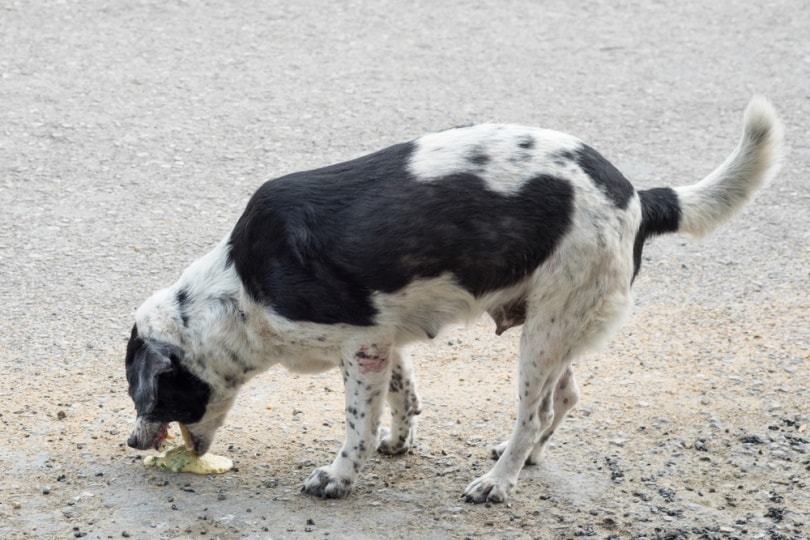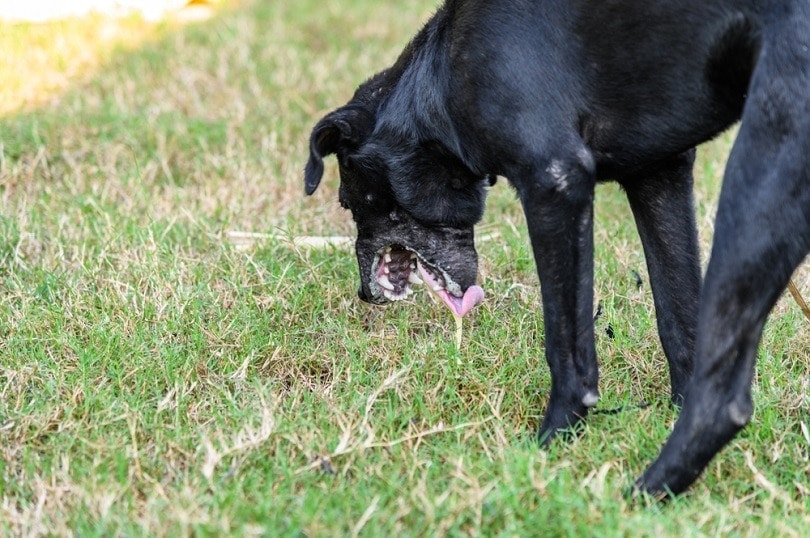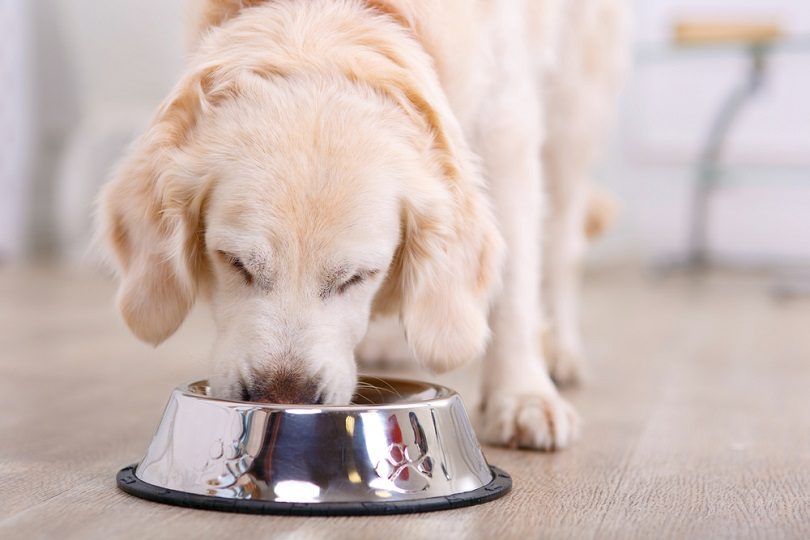Why Does My Dog Throw Up Yellow Bile? 5 Vet-Reviewed Reasons
By Luxifa Le
Updated on

Intermittent instances of vomiting in dogs are standard, just as they are in humans. Hundreds of relatively benign reasons your dog might vomit occasionally, but if your dog is vomiting regularly, this is a sign of a more significant problem.
The presence of bile, a yellow-green substance, is a different story. If your dog regularly throws up bile, you should have your pet seen by a veterinarian immediately, as this is a sign of a more severe problem with your dog’s digestion.
Here are the five most common illnesses that could cause your dog to throw up bile:
The 5 Reasons Dogs Throw Up Yellow Bile
1. Bilious Vomiting Syndrome
Bile is produced by the liver and stored gallbladder. When food is ingested, bile is released into the small intestine to help the body digest the food and utilize it as an energy source for the rest of the body’s functions.
Bilious vomiting syndrome is when bile leaks from the small intestine into the stomach; this usually happens when a dog hasn’t eaten in a while or has consumed abnormally large amounts of fatty foods. Eating a lot of grass or drinking a lot of water can also cause bile to be leaked into the stomach.
Bilious vomiting syndrome patients generally benefit from an easily digestible, low-fat, and high-fiber diet. Smaller, more frequent meals can also help with symptoms of irritable vomiting syndrome.

2. Gastrointestinal Diseases
When a dog is throwing up bile regularly, it’s a sign that there’s something wrong with the digestive system. This could be an inflammatory disease, ulcers, parasite infestations, certain cancers, or minor issues affecting your dog’s digestion.
You’ll need to have your dog evaluated and diagnosed by a veterinarian to receive proper treatment. Bile is highly acidic and can wear down the tissues of the esophagus and stomach, leading to ulcerations if left unchecked.
Breeds with sensitive stomachs like bulldogs, toy breeds, Retrievers, and Poodles should be monitored for signs of bile leakage since they’re predisposed to issues with stomach ulceration.
3. Pancreatitis
Pancreatitis is a hormonal disorder where the pancreas is unable to produce enough of the hormones used to break down sugars in the bloodstream into energy. Highly fatty and oily foods can accelerate or cause pancreatitis in dogs and people, for that matter.
The most common signs of pancreatitis are bilious vomiting, abdominal pain, and diarrhea. Pancreatitis generally appears three to five days after a dog eats overly fatty food but can appear as early as 24 hours after ingestion. You may see your dog throwing up bile 24 to 48 hours after eating fatty foods.

4. Intestinal Blockages
Toys, bones, and other intestinal blockages can cause the bile from the small intestine to leak into the stomach and be expelled through vomiting. These are medical emergencies that require immediate medical attention to remove the blockage.
Usually, an intestinal blockage will start by presenting as regular vomiting that turns into yellow bile after the dog’s stomach has been emptied. It’s ideal for addressing the blockage before your dog starts throwing up bile, as the acidic nature of bitterness can damage your dog’s internal organs.
5. Allergies
If your dog ingests something they’re allergic to, vomiting may occur, and bile may be present in the vomiting as the stomach tries to digest the food they were allergic to. This kind of vomiting generally occurs right after switching to a new food your dog is allergic to.
Dogs’ most common food allergies are beef, dairy, wheat, eggs, chicken, corn, lamb, soy, pork, rabbit, and fish. In some cases, dogs may become allergic to something they’ve eaten regularly for years.
Most pets develop food allergies within 1 to 5 years of age, but some may develop allergies or intolerances later in life. Work with a veterinary nutritionist to find your dog’s best diet!

Final Thoughts
It can be scary to see your dog throwing up bile. That stuff’s supposed to stay in the small intestine; it makes sense to be frightening to witness! Luckily, early intervention can help manage the conditions of throwing up bile. Talk with your veterinarian to build a plan for your dog’s continued health and well-being!
Featured Image Credit: Mumemories, Shutterstock












